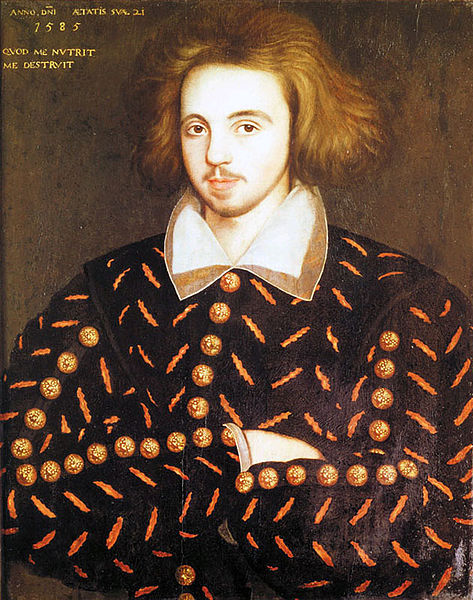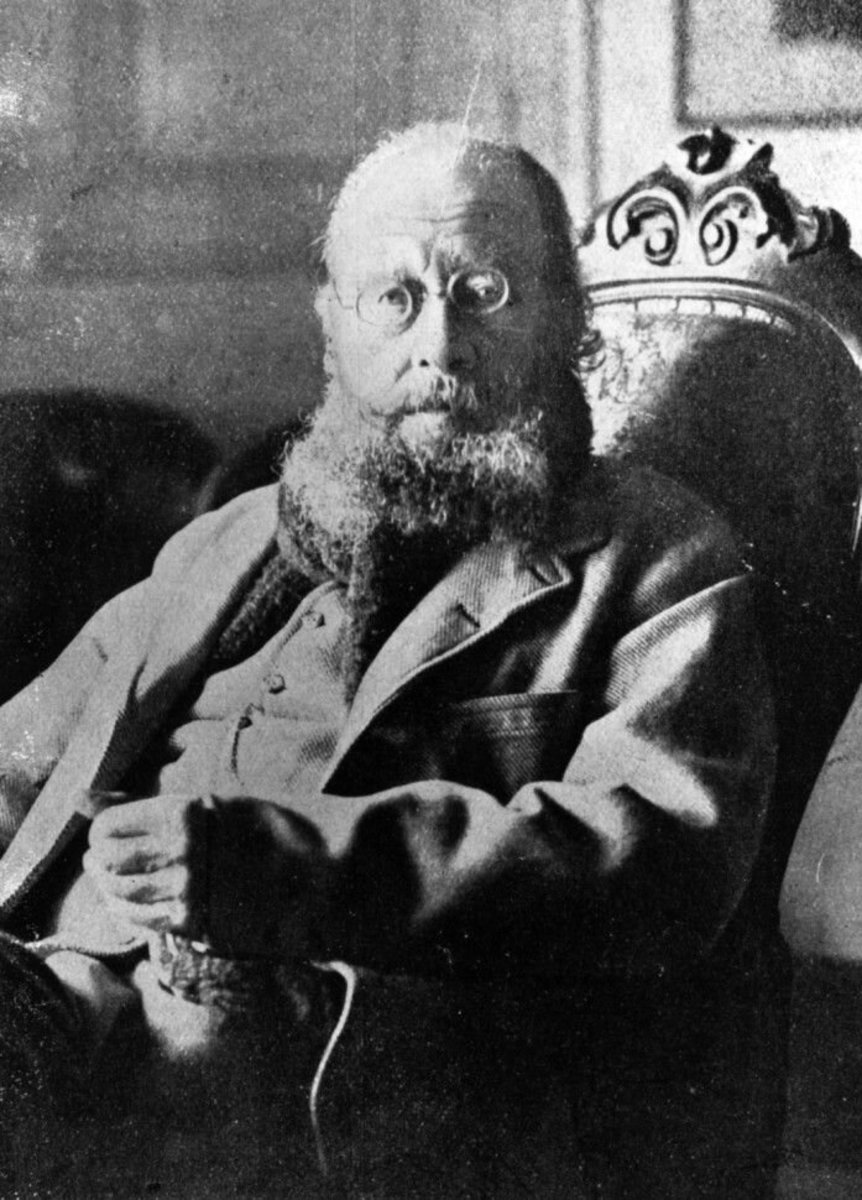Christopher Marlowe the Mysterious Love Poet

Christopher Marlowe : Introduction
Christopher Marlowe, love poet and playwright, contemporary of William Shakespeare, was reputedly stabbed to death during a brawl in a London tavern on May 30th 1593. To this day, no one knows the exact details.
This article will explore the life of this mysterious scholar and help clear up the murky waters surrounding his death. On the way we'll take a glimpse into his poetry and try to discover such what made him tick.
He was born in the same year as William Shakespeare - 1564 - and came from a similar humble background. His father was a shoemaker (Shakespeare's father made gloves) in the city of Canterbury, Kent, and had sufficient funds and know how to send his bright son to an excellent local school, the King's School.
From here he went to Cambridge as a scholar, intending to become a minister of the church but instead it seems his wayward nature, fiery temperament and unorthodox thinking put paid to this idea. He became an atheist according to some sources. He was also alleged to have been a spy at a time when religious persecution and political espionage were at their peak.
Between the years 1583 and 1587 little is known of his studies and activities. There is no known proof for example that he was at any time a government spy yet he did know certain individuals of the time who were definitely connected to this dark and dangerous underworld. We'll investigate this claim a little later.
What is certain is that he was already writing plays and attempting poetry which was to have a profound effect on other writers, including Shakespeare himself. Christopher Marlowe as a playwright is known as the first true English tragedian, author of the first English play written in blank verse, Dido Queen of Carthage.
_____________________________________________________
Marlowe's Curious Death
After he left Cambridge, in around 1587, Marlowe joined an acting group - Lord Admiral's Company of Players - run by the actor Edward Alleyn, and began to write and help stage his self penned plays.
For the next few years it seems that Marlowe led two or more distinct lives. On the one hand he was a playwright in London, establishing himself as a bona fide professional and making a name for himself.
On the other it appears he was entangled in a web of counter-espionage, illegal misdemeanours and religious controversy. This at a time when you could be burnt at the stake for saying the wrong thing at the wrong time to the right person.
In 1592 for instance he was arrested in the Netherlands for being an alleged member of a counterfeiting gang. Somehow he got out of this with the help of official government contacts, evidence some suggest that he was sufficiently useful to the government for them to intervene. That is, he was a spy.
What followed in 1593 was Christopher Marlowe's death but this again is shrouded in mystery. If you read one account he died of the plague, read another and he was caught up in a row over a bill (a reckoning) to be paid at an inn in Deptford, southeast London. He is said to have been stabbed above the right eye.
The plain truth is no-one knows the exact nature of his death. We only know a young genius was cut down in his prime and buried in an unmarked grave.
_______________________________________________________
The Mystery of Christopher Marlowe's Death Remains
The death of Christopher Marlowe has been chewed over many times since that fateful day in 1593. New novels appear, fresh stories are told - all attempts to pin down the killer and the reasons why.
You'll read about a certain Ingram Frizer, one of Marlowe's colleagues but more importantly one connected to Thomas Walsingham, a courtier desperately seeking royal patronage. Frizer is said to be the one who stabbed Marlowe in the eye, possibly under orders from Walsingham, at Mrs Bull's dining house in Deptford.
And why would Walsingham and Frizer want the poet dead? Well, Marlowe was an outspoken atheist and despite support from the government for his clandestine spyings, was too much of a liability in such religiously fervent times.
Was Christopher Marlowe 'baited' into that meeting, trapped between an agent provocateur and a couple of hired thugs?
The truth is, Marlowe's death will more than likely remain a mystery until concrete evidence appears in an as yet undiscovered document.
Epyllion
An epyllion is a narrative poem, shorter than an epic poem, and inspired by Ovid's Metamorphoses, a book of Greek myth.
Marlowe's Best Known Poem
Marlowe's best known poem is Hero and Leander, a long poem - an epyllion - which contains erotic and romantic elements centred on the myth of the young man Leander and the priestess Hero.
But, far above the lovliest, Hero shined,
And stole away the enchanted gazer's mind;
For like sea nymphs' inveigling harmony,
So was her beauty to the standers by.
Hero and Leander is written in rhyming couplets of iambic pentameter.
____________________________________________________
The Passionate Shepherd to His Love
The second poem is The Passionate Shepherd to His Love, a 6 stanza piece that has become a classic.
Come live with me and be my love,
And we will all the pleasures prove,
That Valleys, groves, hills, and fields,
Woods, or steepy mountain yields.
And we will sit upon the Rocks,
Seeing the Shepherds feed their flocks,
By shallow Rivers to whose falls
Melodious birds sing Madrigals.
And I will make thee beds of Roses
And a thousand fragrant posies,
A cap of flowers, and a kirtle
Embroidered all with leaves of Myrtle;
A gown made of the finest wool
Which from our pretty Lambs we pull;
Fair lined slippers for the cold,
With buckles of the purest gold;
A belt of straw and Ivy buds,
With Coral clasps and Amber studs:
And if these pleasures may thee move,
Come live with me, and be my love.
The Shepherds’ Swains shall dance and sing
For thy delight each May-morning:
If these delights thy mind may move,
Then live with me, and be my love.
_______________________________________________________
Was Marlowe William Shakespeare?
There are some who believe that William Shakespeare, son of a glovemaker from lowly Stratford couldn't possibly have written some of the finest poems and greatest dramas the world has seen.
They point to the fact that much of the material in the plays is 'Cambridge-specific vocabulary' i.e. the contents could only have come from someone educated at Cambridge University, which of course Marlowe was.
Further to this, Marlowe wrote the first true quality blank verse play, and was a master of the art. Shakespeare too was a master of the unrhymed iambic pentameter. Surely the chances of two literary geniuses emerging at virtually the same time, from relatively poor backgrounds, are beyond mere concidence?
But if Marlowe died in 1593 and Shakespeare in 1616 how could one be the other? Well, say the theorists, Marlowe faked his own death then secretly lived out his life as Shakespeare!
I'm not buying this theory which seems to be put forward by academics incapable of entertaining the idea of a 'commoner' from outside of London creating works of genius.
Richard Burton's voice in this recording is simply perfect.

Copyright chef-de-jour@Hubpages
Help stop plagiarism. This original article should not be stolen. Please contact author
© 2012 Andrew Spacey




